German WW1 diary solves British soldier 'mystery'
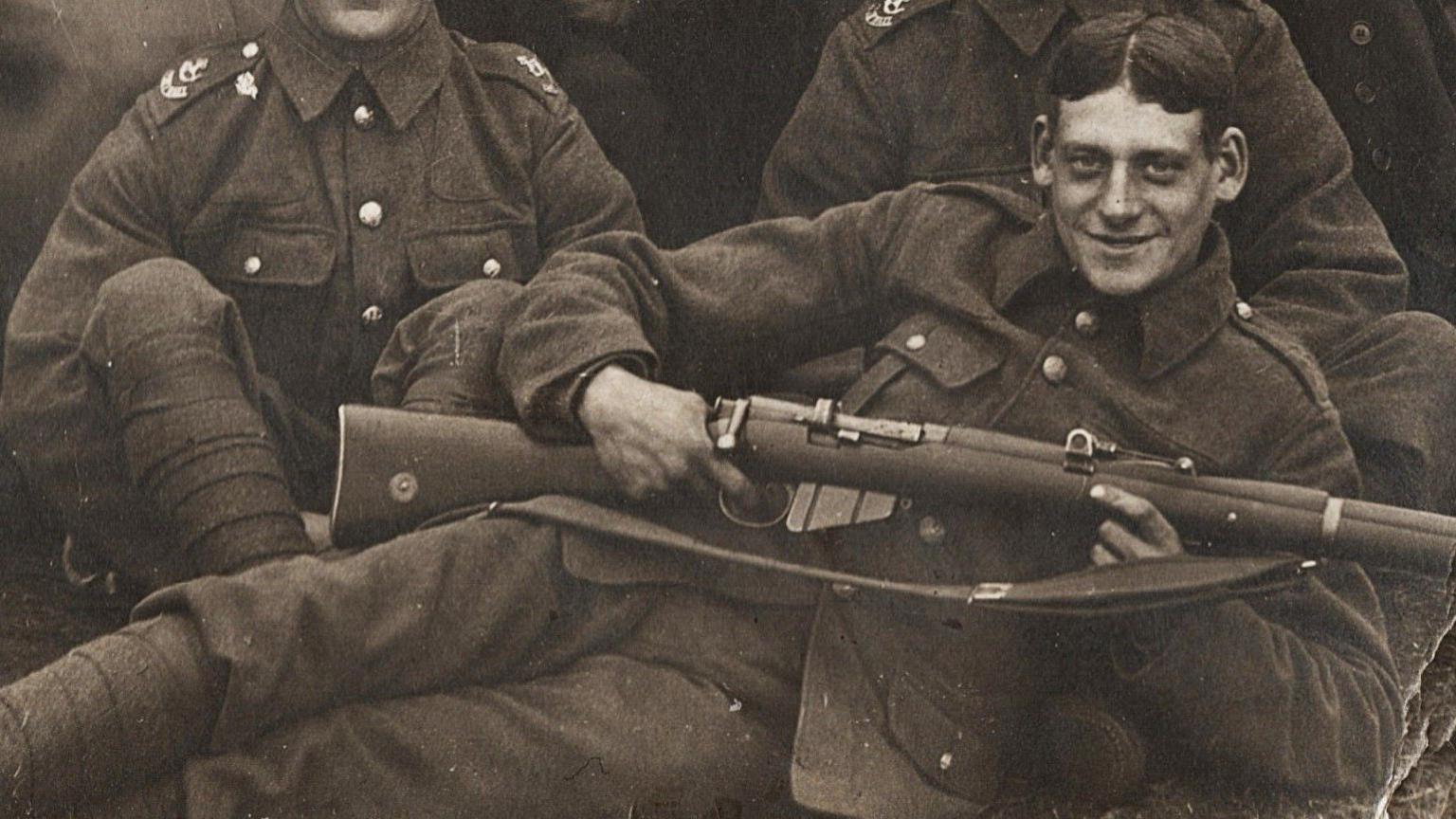
The picture on the postcard was of Pte Percy Walsh and his colleagues and family
- Published
A postcard discovered in the diary of a German World War One officer has led his descendant to bring a message sent to the trenches more than a century ago back to the family of a fallen British soldier.
Lt Alexander Pfeifer found the postcard on Pte Percy Walsh, from Blackburn, Lancashire, after the 22-year-old was killed as German forces recaptured a trench on 22 December 1914.
The image on the postcard was of Pte Walsh, some of his Loyal North Lancashire Regiment comrades and members of their families.
More than 110 years later, the German officer's great, great grandson Philipp Cross has returned it to the soldier's family, who had been unaware of its existence until now.
The diary of Alexander Pfeifer lay untouched, stored under a bed, for many years but it was not until Philipp began to research his German roots that he realised the descendants of his relative's enemies were living just a few miles away from him in Whalley, near Blackburn.
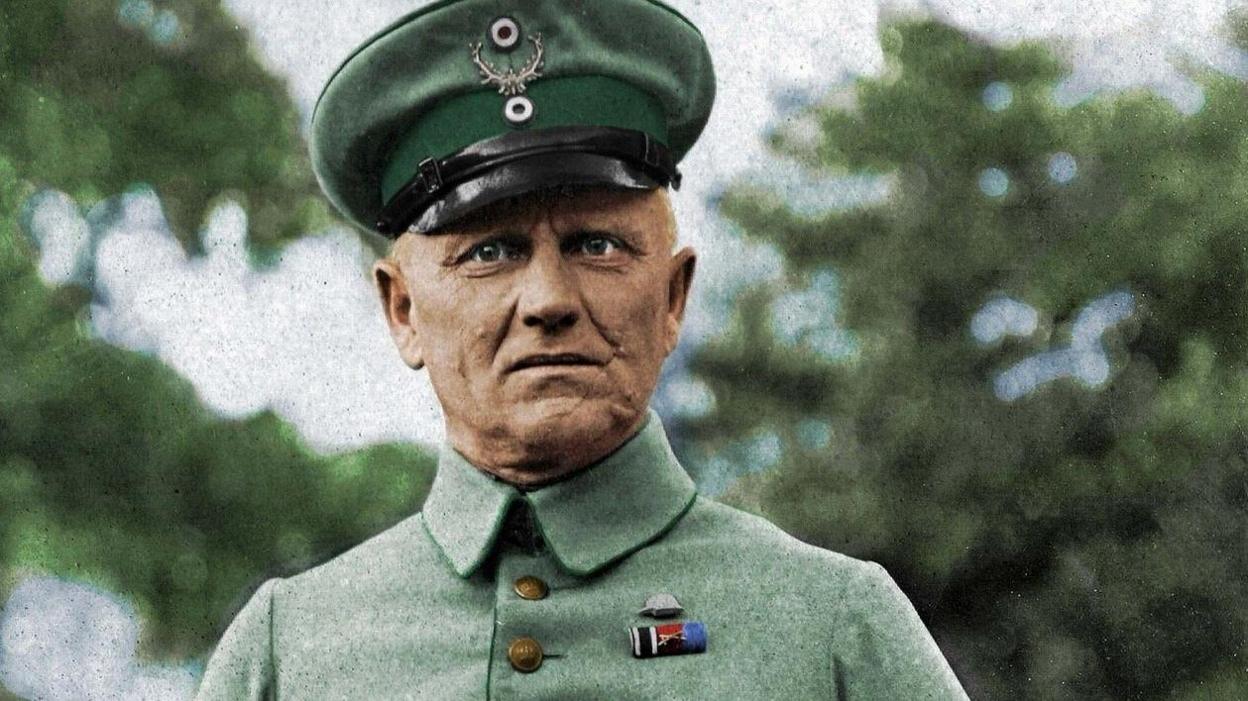
Philipp Cross has translated the whole of his great-great grandfather's trench diary
The 28-year-old, who has a British father and a German mother, inherited many items from his mother's great grandfather, including the diary and several photographs that documented his time fighting in the conflict.
Among the collection were postcards found on the bodies of the fallen, including one which pictured British soldiers.
It was signed: "With love from us all – to Percy xx."
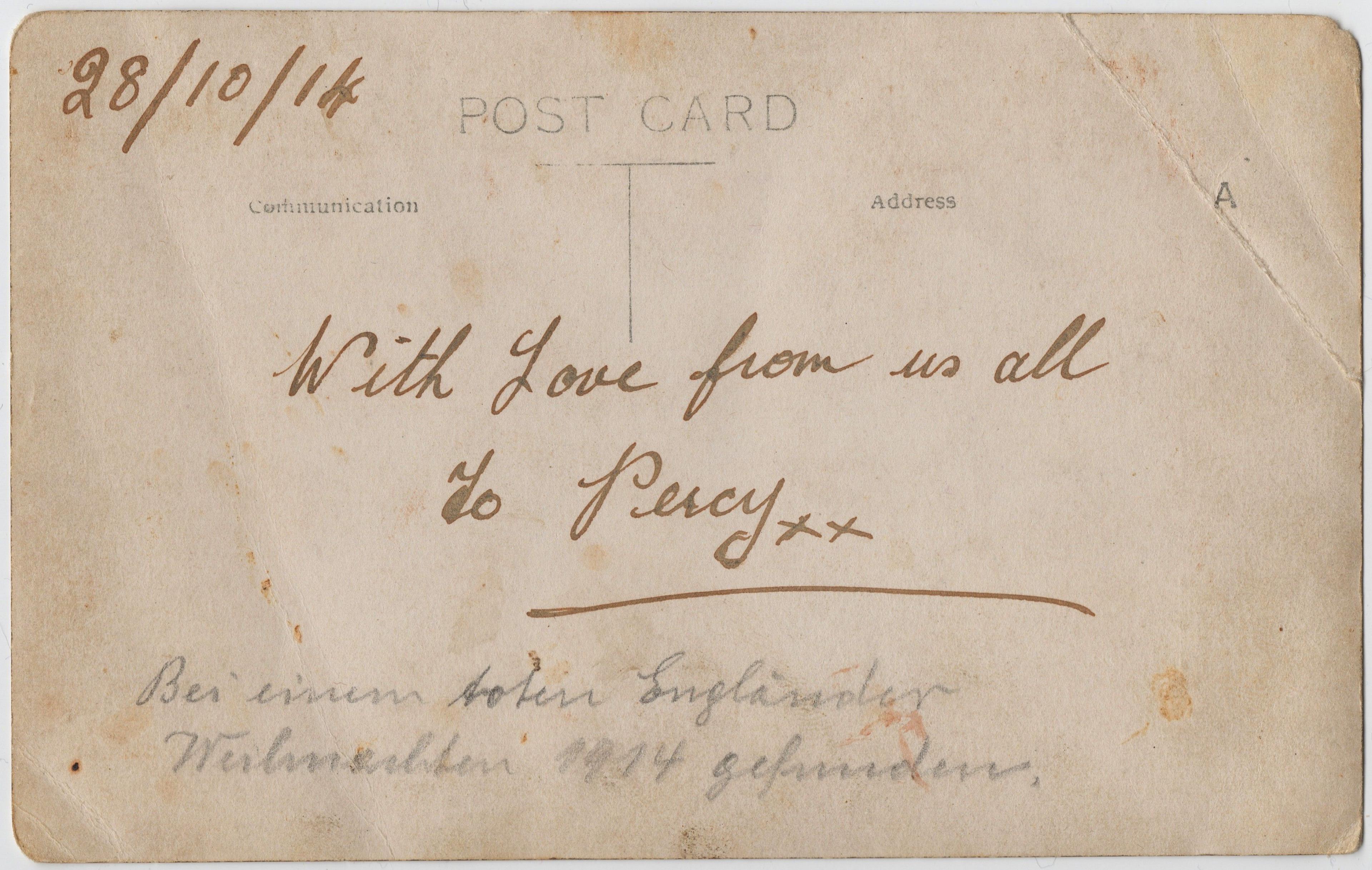
Philipp was able to track down the family through war databases and the diary
Lt Pfeifer's diary entries from the time graphically described what he and his troops saw in the trenches where the postcard was found and the conditions they faced.
He wrote:
I saw gruesome images - two heavy shells struck in the middle of my company. Once the poisonous yellow-green smoke disappeared, the ground was covered with dead and wounded... Torn Englishmen and Indians lie around in masses. Nevertheless, you are so dulled that you no longer get upset about anything.
In a later entry, he added:
Moonlit night. The dead are scattered all over the fields in front of us - this is an image that I will never forget. We achieved extraordinary things and endured terrible suffering these past few days. Our worst enemy of all was the knee-deep, tough mud that required great effort to get your feet out of... I was stuck in my completely muddy and dripping clothes for 14 days, I only slept properly for two hours in four days, and today I washed myself for the first time in 14 days. We are physically and mentally completely broken down, and I am not ashamed to say that we sometimes cried in despair. The only consolation is that things are no different for the English.
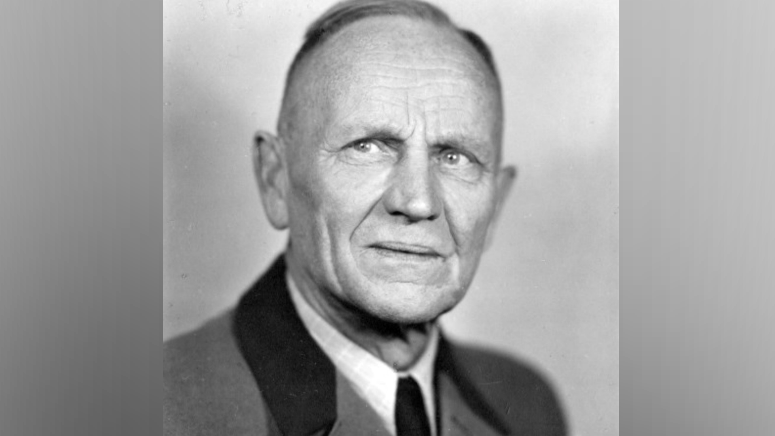
Philipp says he believes the diary was "a form of therapy" for his ancestor
Philipp was able to piece together Percy's story, discovering his surname and his commemorative resting place at Le Touret Memorial, which stands beside the same road where fighting took place on the Western Front.
Through war database research, Phillip discovered that Percy Walsh lived in Blackburn and was 22 when he died.
He also found out the young soldier had been married for one year and had a son, who was six months old at the time of his death.
"The whole thought of my ancestor fighting a lot of these lads who grew up around Lancashire, and having the items as well that belong to these men, it is just absolutely mind-blowing," Philipp said.
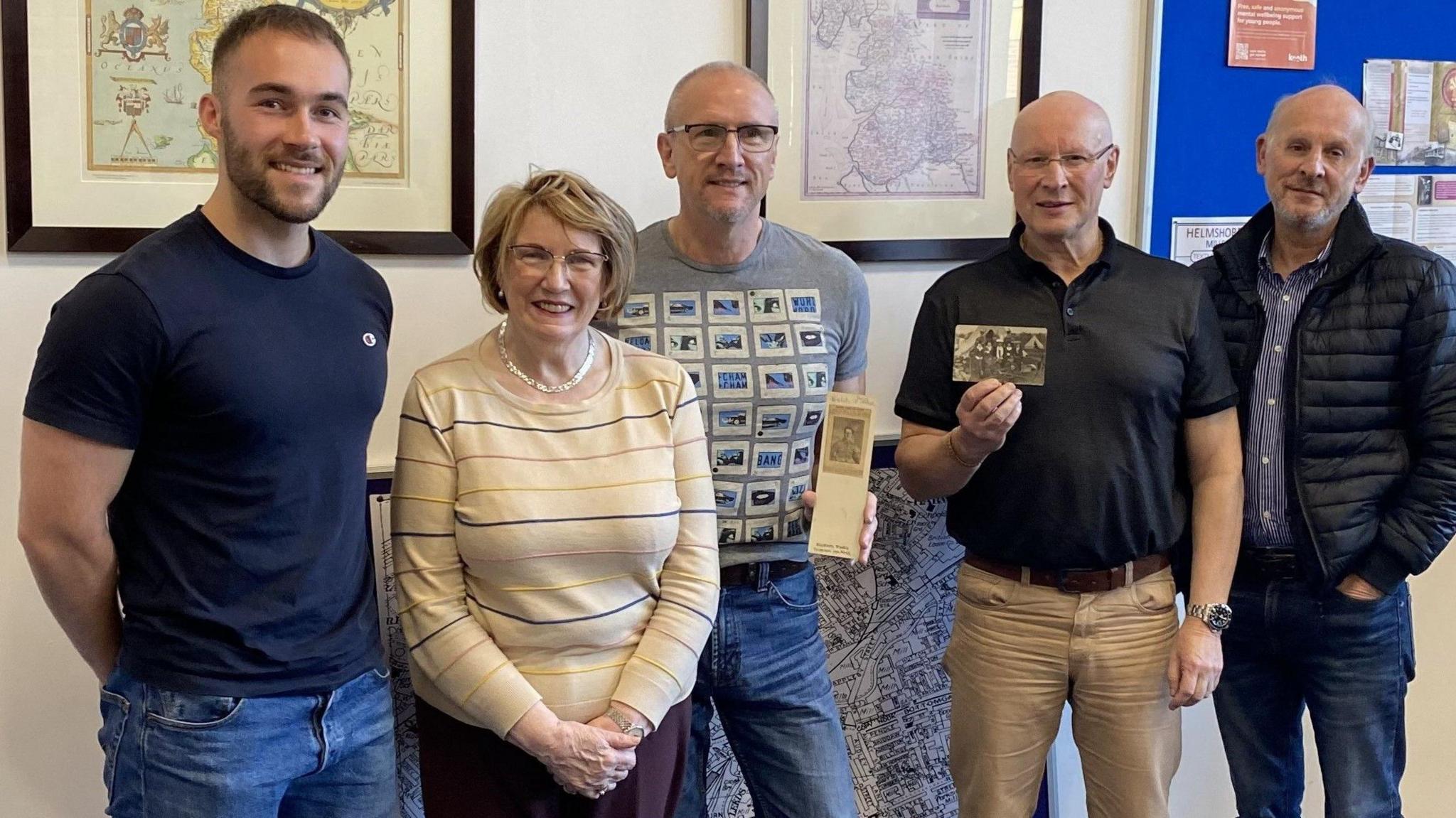
Philipp Cross (left) met with the Walsh family to return the postcard
With the help of Blackburn Central Library, Pte Walsh's living relatives were found and a meeting was organised between the two families.
Philipp said he was nervous to meet them.
"I had butterflies in my stomach the whole time, it was surreal," he said.
At their meeting, Philipp handed the postcard back to Pte Walsh's family.
More than that though, he was also able to share details of the battle in which their ancestor died, thanks to the diary Lt Pfeifer had left behind.
The family had known about Pte Walsh, but had no idea what had happened to him as he was recorded as "lost at war".
They had also never seen a photograph of him until Philipp handed over the postcard.
He said he was glad the meeting had gone so well.
"These horrible events that happened so long ago have created these positive relationships over a century later," he said.
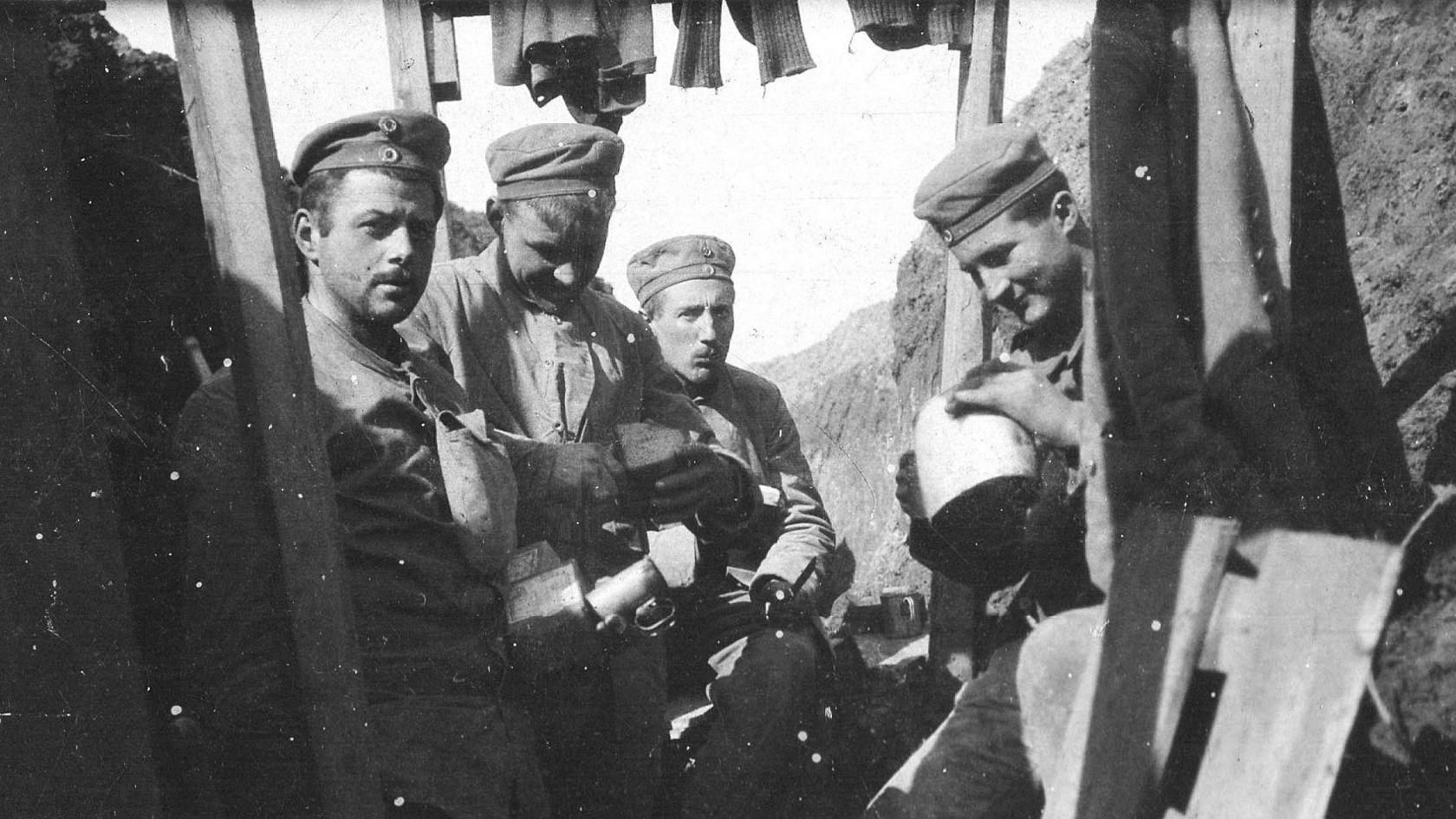
Pictures showing German soldiers in the trenches were also among the diary extracts
Francis Robinson, Pte Walsh's grand-nephew, said the postcard had brought the family together and given his ancestor's story an ending, albeit a sad one.
The 62-year-old, who lives in Mellor, Blackburn, said it was "a mystery what had happened to poor Percy that went to war but now we know".
"His wife went to great lengths to find out what happened to him, putting adverts in the local paper," he said.
"It seems like they were throwing hand grenades from one trench to the next and really clearing out - to gain a trench [and] then lose it the day after - along with Percy's life.
"It is so futile, but I was happy that at least we got something back from Percy."
He said Philipp had also "very kindly" gone to the memorial in France and "took some photographs for us".
He added that the postcard would now be passed down within the family for generations to come.
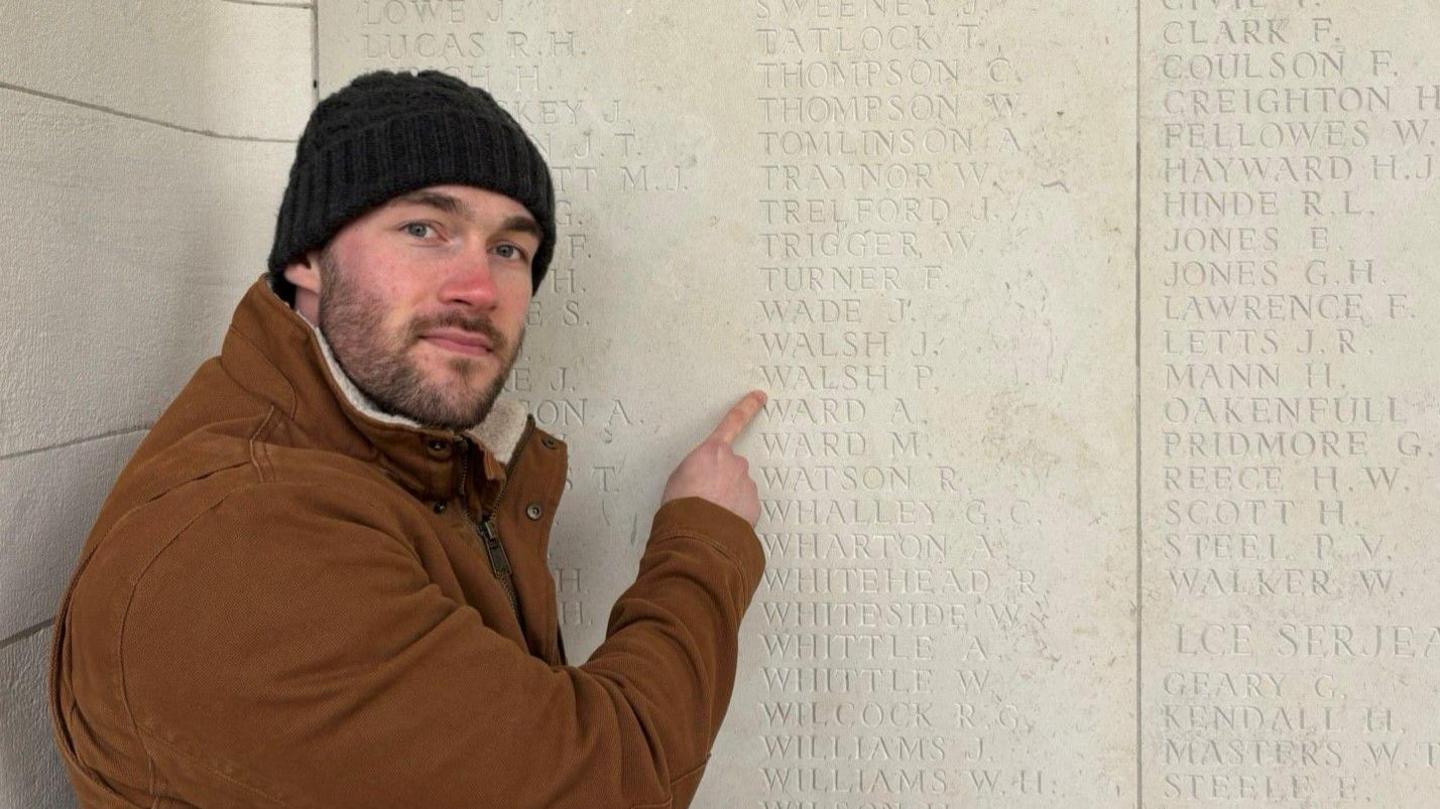
Philipp visited the grave site of Pte Walsh in France
Philipp has turned the diary into a book, The Other Trench, which shares both Lt Pfeifer's words and photos.
He said it was one of only a handful that gives the experience of life in World War One's trenches from a German perspective.
He added that he believes the diary was "a form of therapy" for his ancestor and it almost felt like a duty to complete what Lt Pfeifer could not.
"I feel really lucky to have all this because a lot of people don't know their great grandparents, never mind their great, great grandparents," he said.
"Having this is like a time machine into the past and it's just really special.
"And what's more special is how it's not just my family history, but world history."
Listen to the best of BBC Radio Lancashire on Sounds and follow BBC Lancashire on Facebook, external, X, external and Instagram, external. You can also send story ideas to northwest.newsonline@bbc.co.uk, external